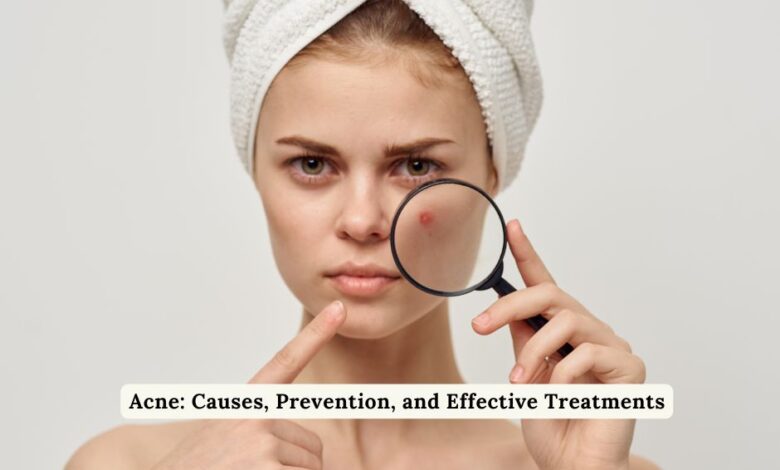
Acne is a common skin concern that affects millions of people worldwide. While it can be frustrating, the good news is that acne can be managed effectively with the right skincare routine and treatments. In this guide, we will explore different categories of acne treatments, including preventive skincare, over-the-counter solutions, and prescription treatments.
Preventive Acne Skincare: Daily Habits for Clear Skin
Preventing acne starts with a consistent and effective skincare routine. General acne skincare products focus on maintaining skin health and preventing breakouts before they occur. These products include:
- Cleansers and Face Washes: Formulated to remove excess oil, dirt, and bacteria that contribute to acne.
- Makeup Removers: Ensuring that makeup is thoroughly removed helps prevent clogged pores and breakouts.
- Exfoliators and Skin Peels: These help remove dead skin cells, reducing the risk of pore blockage and bacterial growth.
Many of these products contain ingredients like salicylic acid, glycolic acid, or tea tree oil, which help control oil production and keep pores clear. Regular exfoliation can also prevent the buildup of dead skin, reducing acne formation over time.
Over-the-Counter Acne Treatments: Targeting Mild to Moderate Acne
For those struggling with occasional breakouts, over-the-counter (OTC) acne treatments can be highly effective. These products are widely available and do not require a prescription. Some popular options include:
- Benzoyl Peroxide Creams and Gels: Known for its antibacterial properties, benzoyl peroxide helps eliminate acne-causing bacteria. It is recommended to start with a lower concentration (e.g., 5%) and gradually increase as needed.
- Salicylic Acid Treatments: This beta-hydroxy acid (BHA) penetrates deep into the pores to clear out excess oil and dead skin cells.
- Alpha-Hydroxy Acid (AHA) Moisturizers: AHAs, such as glycolic acid, help exfoliate the skin and promote cell turnover, reducing acne scars and blemishes.
- Oil-Control Vanishing Creams: These products absorb excess oil, preventing clogged pores and breakouts.
Finding the right acne skincare product may require some trial and error, as different skin types respond differently to various ingredients. If OTC treatments do not show results within a few weeks, consulting a dermatologist is advisable.
Prescription Acne Treatments: Solutions for Severe Acne
For persistent or severe acne, dermatologists may prescribe stronger treatments tailored to individual skin conditions. These include:
- Topical Prescription Medications: These may include retinoids (such as tretinoin) that help increase skin cell turnover and prevent clogged pores.
- Oral Antibiotics: Used to reduce inflammation and bacterial growth, antibiotics like doxycycline and minocycline are often prescribed for moderate to severe acne.
- Hormonal Therapy: Since hormonal imbalances can contribute to acne, treatments like birth control pills or anti-androgen medications may be recommended for some individuals.
- Minor Dermatological Procedures: In some cases, a dermatologist may suggest treatments such as chemical peels, laser therapy, or extractions to remove deep-seated acne.
It is crucial to follow a dermatologist’s guidance and avoid self-extractions, as squeezing pimples can lead to permanent scarring and skin damage.
Final Thoughts: Achieving Clear, Healthy Skin
Managing acne requires a combination of preventive care, effective treatments, and patience. By incorporating a tailored skincare routine, using the right acne treatments, and seeking professional advice when needed, you can take control of your skin health. With numerous acne solutions available, finding the right approach can make achieving clear skin a reality.



